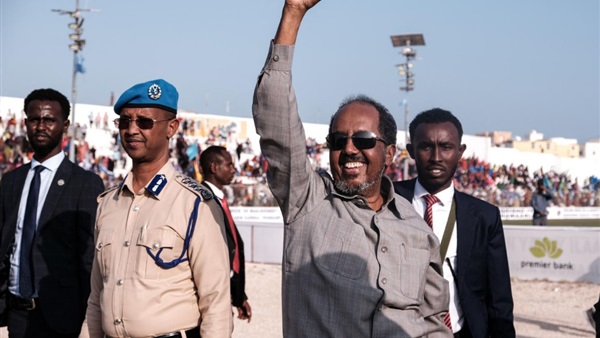Somalia's President Declares "Total War" on al-Shabaab, Empowering Rural Uprisings to End Chronic Insecurity

Somalia's President Hassan Sheikh Mohamud has declared
"total war" on al-Shabaab, the al-Qaeda franchise that tried to
assassinate him three times during his first term as president. Mohamud claims
that they are still trying to kill him and offering a large bounty to anyone
who succeeds. Since Mohamud was re-elected in May 2021, he has taken a new
approach to tackling al-Shabaab, seeking to tap into the knowledge of local
people, in contrast to past administrations.
A crucial aspect of his "total war" strategy has
been to support rural uprisings against al-Shabaab by Somali clans fed up with
the jihadists' oppressive rule, backing clan militias called the Ma'awisley with
ammunition, transport, and medical evacuations. The US has provided drone
strikes. This approach, according to some, draws parallels with Iraq's tribal
uprisings in 2006-2007, which shook off jihadist rule with US military help.
However, there is concern that Mohamud's empowering of clan
militias could lead to future instability if they start fighting among
themselves after the jihadists are gone. Mohamud and his advisers reject this
idea, saying the militia movement is fully controlled by the national army, but
the army itself is plagued by factionalism and corruption. Disputes between its
different branches, as well as the police, often turn violent. On Saturday, two
units fought at a road crossing in Mogadishu.
So far, the "total war" approach appears to be
working, with several major towns and roads back under government control.
Mohamud claims that his government will announce the eviction of the jihadists
from the central states of Hirshabelle and Galmudug in a couple of weeks. After
that, the focus will be on forcing the jihadists from their remaining
strongholds in the south.
Another part of Mohamud's "total war" is going
after the jihadists' finances. In 2020, researchers estimated that al-Shabaab
raised at least £11 million a month, mostly through violent extortion of
businessmen and even civil servants. Mohamud's government seeks to counter
al-Shabaab's jihadist message, recognising that "once we defeat them
militarily, the ideology will remain". To this end, he has appointed a
former deputy leader of al-Shabaab – once the subject of a $5 million US bounty
– as his religious affairs minister and gathered together a group of 300
clerics who issued a fatwa against the group.
The approach Mohamud is taking signals a break from previous
administrations, including his, that failed to tap into the knowledge of local
people. He emphasises that his new approach rests on "mobilising the
people" and taking the war against al-Shabaab to the lowest level. This
approach, Mohamud claims, has left al-Shabaab resembling "a fish run short
of water", unable to hide within the population or impose taxes on them.





